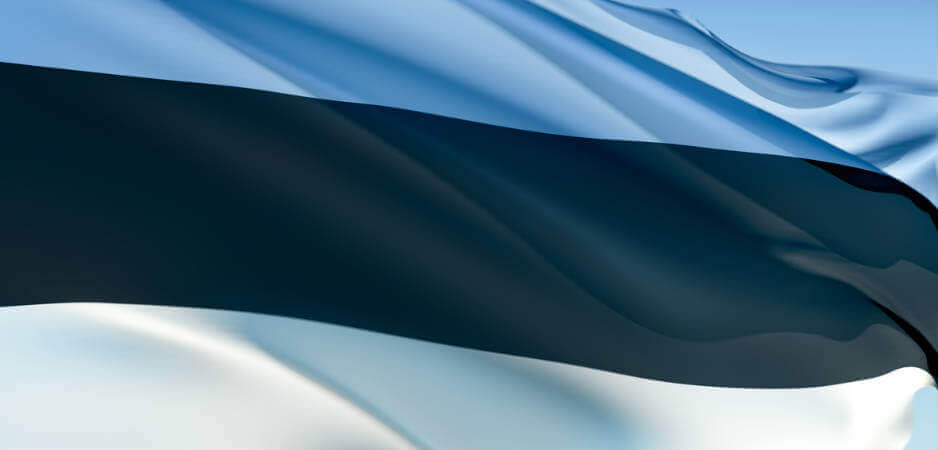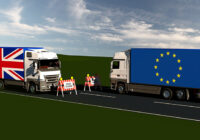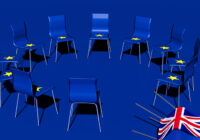Estonia takes over the EU presidency for the second half of 2017.
The European Union, and the Western-led liberal-internationalist world order more generally, have been constantly shaken by crises and uncertainty in recent years. The political bloc has struggled with an economic crisis and rising challenges to its liberal values, both in the West and East. Not all is gloomy, however. A remarkably success nation of just 1.3 million is on the cusp of assuming the EU’s rotating presidency: That nation is Estonia.
Estonia, like all the Baltic States, was just one generation ago still part of the dictatorial communist Soviet Union. Since then, however, the country has been a model for rapid convergence with the best of the West. Whether in terms of good government or economic performance, Estonia has been a frontrunner. Furthermore, whereas according to the Bertelsmann Foundation’s Transformation Index (BTI) the quality of democracy and economic openness has declined in many emerging countries in recent years, Estonia has maintained its performance, being ranked the second most well-governed country among those ranked.
In terms of government, Estonia has long been renowned for its efficient administration, low corruption and innovations in e-government — in recent elections, between a quarter and a third of Estonians have been casting their votes online. One of the driving forces for Estonia’s exceptional digitalization process, former President Toomas Hendrik Ilves, has been awarded the Reinhard Mohn Prize 2017 for his pioneering work.
Economically, the country has enjoyed a strong recovery since the financial crisis. Unemployment has fallen to 6.8%, and the European Commission has forecast that the economy will grow 2.8% in 2018. Estonia has been unique among the developed countries in escaping the lure of debt: In 2016, public debt fell to 9.5% of GDP and, astonishingly, the government enjoyed 0.3% budget surplus. The little Baltic nation joined the eurozone in 2011 and is by any measure one of the currency bloc’s star members.
Also, encouragingly, last year Estonia had a net positive migration flow for the first time since independence in 1989, the country having traditionally been a land of emigration. Estonia has made these remarkable economic achievements thanks to a combination of competence and flexibility. The economy is open, with external trade being worth 90% of GDP, labour markets are flexible, the minimum wage increased to €470 per month in 2017 from around €350 in 2014 and welfare spending is moderate. Inequality and poverty are broadly in line with the European average.
Estonia’s high performance is unfortunately somewhat exceptional. The BTI’s average score for Eastern European countries’ quality of democracy has declined from 8.62 in 2008 to 8.19 in 2016. These countries’ average market economy score has furthermore declined from 8.16 to 7.86 over the same period. These measurements reflect negative trends in both current EU members such as Hungary and Croatia, as well as countries hoping to join the bloc, such as Macedonia and Bosnia.
Holding the rotating EU Council presidency throughout the second half of 2017, Estonians will preside over meetings of national ministers and thus have a critical role to play in setting the agenda and finding consensus in European policy. The Estonians hope to bring their model of governing through transparency, openness and e-government to their presidency of the EU. They will be pushing hard on a few major dossiers: the completion of the EU’s single digital market, the energy union that aims to improve the sector’s security and competitiveness, and the integration of more Eastern European countries.
Estonia will be taking charge at an ambiguous time in the EU’s history. On the one hand, it is no secret that the bloc has faced challenges from all sides: the euro crisis, the migrant crisis, the United Kingdom’s Brexit vote to leave the EU, Donald Trump’s isolationist policies, Russian interventionism in Eastern Europe and indeed the rise of nativist populism among EU countries in Central Europe. At the same time, the eurozone appears to have turned the corner economically, being projected to grow 1.7% in 2017.
Furthermore, the EU may well be on the cusp of a return to strong leadership, with the unabashed Europhile Emmanuel Macron winning both the French presidency and a supermajority in the National Assembly. If Macron is able to provide decisive leadership, the EU could for the first time in years to witness the return of the strong Franco-German axis on which it has so often depended for leaps in integration. This favorable situation, along with the Estonian professionalism as a model, could mean this presidency will be able to make great progress over the next six months.
The views expressed in this article are the author’s own and do not necessarily reflect Fair Observer’s editorial policy.
Photo Credit: bkindler
Support Fair Observer
We rely on your support for our independence, diversity and quality.
For more than 10 years, Fair Observer has been free, fair and independent. No billionaire owns us, no advertisers control us. We are a reader-supported nonprofit. Unlike many other publications, we keep our content free for readers regardless of where they live or whether they can afford to pay. We have no paywalls and no ads.
In the post-truth era of fake news, echo chambers and filter bubbles, we publish a plurality of perspectives from around the world. Anyone can publish with us, but everyone goes through a rigorous editorial process. So, you get fact-checked, well-reasoned content instead of noise.
We publish 2,500+ voices from 90+ countries. We also conduct education and training programs
on subjects ranging from digital media and journalism to writing and critical thinking. This
doesn’t come cheap. Servers, editors, trainers and web developers cost
money.
Please consider supporting us on a regular basis as a recurring donor or a
sustaining member.
Will you support FO’s journalism?
We rely on your support for our independence, diversity and quality.






